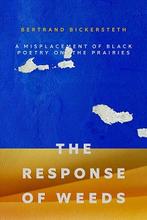"I'm in Iceland, darling" by Jónína Kirton
Jónína Kirton is one of the authors whose reflective prose is featured in Brian Bartlett's section of our 75th anniversary issue. She is a Red River Métis/Icelandic poet, and was sixty-one when she received the 2016 Vancouver’s Mayor’s Arts Award for an Emerging Artist in the Literary Arts category.
Enjoy Kirton's live reading of I'm in Iceland, darling during our 75th anniversary online celebration on November 25. After reading, click here for more information on how to register for the free events!














